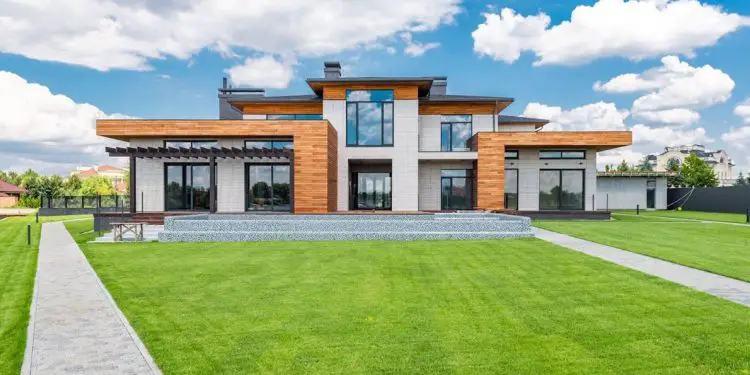10 Questions to Ask Previous Owners Before Buying a New House

Many dream of owning a home, which can often be complicated and full of unexpected turns. The excitement of finding your perfect property can quickly turn to dismay when hidden costs, unexpected repairs, and unforeseen complications arise.
But what if you could eliminate all these undesired surprises by opting for fixed energy rates and enter into the purchase of your home with self-confidence and understanding? The key here is to ensure you inquire before putting your signature on the papers.
By researching the best time and method for purchasing, you can save thousands of pounds, avoid costly mistakes, and keep your dream house from becoming a nightmare. Consider the following 10 questions before you venture out to buy your new house.
Question 1: What’s my budget?
Sometimes one of the most critical steps in house hunting is assessing your finances. Awareness of what you are capable of financially will prevent the precipitation of such stress in the later stages.
Look closely at what your regular income and expenses are; afterwards, choose a sustainable budget that doesn’t cause you to be that uncomfortable when it comes to housing.
Be realistic with yourself in determining how much you can afford comfortably, and don’t fail to remember to introduce a margin for unforeseeable expenditure as well. The final outcome is to let you save both time and effort and only consider properties that could fall within the set budget.
Question 2: What’s the property’s history and condition?
This can turn the house of your dreams into a real horror house. Check whether there’s a history of flooding or other issues that might affect the structure.
Is there any pest or rodent damage? Have there been any significant renovations to the property or extensions to the title deeds? If yes, have they complied with the applicable building regulations? What did you notice about the electrical and plumbing state? Are there problems with the roof, walls, or foundation, like cracks or leakage?
Question 3: Is the location suitable for me?
Consider your daily needs, such as work, schools, and amenities. Is the neighbourhood safe and convenient? Evaluate the available shops, restaurants, and recreation areas in the district.
Are there green spaces nearby where you can relax and unwind? What about the noise level and safety of the area? Will the people around you be older, younger families, or a combination of both?
Question 4: What are the neighbours like?
Get acquainted with the different types of people you will be cohabiting with. The hybrids – noisy or friendly? They are the new characters of our community. It’s pretty reassuring to know what to expect. A brief conversation with the neighbours or a trip to the community hall down the road may help one understand what is happening more clearly. Disputes tend to arise even with neighbours. Thus, it is wise to ask the seller or the estate agent about any dispute or issue that might be lingering and could affect your peaceful living.
Question 5: Are there any hidden costs or fees?
Buying a home comes with expenses beyond the price tag. Make sure you know about taxes, fees, and potential repairs. Unexpected costs can mount up quickly and deplete your funds, so you don’t want to be caught off guard.
It’s vital to get a clear picture of all the costs involved to factor them into your budget. This way you’ll avoid any nasty surprises down the line.
Question 6: What’s the property’s energy efficiency like?
A well-insulated home can save you money on bills. Check out the energy features to see if they’re up to par. Besides, modern, energy-efficient appliances can save you hundreds of pounds each year.
Find out about the condition of the boiler, the type of windows, and the insulation in the loft and walls. A little digging now can prevent many financial headaches down the line. Make sure to ask the previous owners when the boiler was installed and if it is still under warranty. If it’s an old boiler, you might want to factor the cost of a new boiler installation into future refurbishment costs.
Question 7: How’s the local transport and infrastructure?
A smooth commute can make a big difference. Look into transportation options and future developments in the area.
Before making an offer, research the local transport options, including bus routes, train stations, and road networks. Are they frequent and reliable? Are there any plans for future developments or upgrades that could affect your commute?
Question 8: Are there any planning or development restrictions?
If you have big renovation plans, ensure the property allows it. Check for any restrictions that could limit your changes.
Determine if additional development phases could impact your views, noise levels, or even the resale value of your property. By asking about planning or development restrictions, you’ll ensure that your dream home remains just that—a dream come true.
Question 9: What’s the resale value of the property?
Even if you’re not planning to move soon, it’s wise to consider future resale value. Will the property hold its worth?
Will your dream home still be desirable in 5, 10, or 15 years? Will its value appreciate or depreciate over time? Are there any potential developments or changes in the area that could impact the property’s resale value?
Question 10: What’s the process for resolving disputes or issues?
Know what steps to take if problems arise. Being prepared can save you many headaches down the line. Perhaps the seller has misrepresented the property, or the neighbours are less than neighbourly. Maybe the property management company is unresponsive, or the building has a hidden defect driving you up the wall.
Having a clear understanding of the process for resolving disputes or issues can save you from a world of stress, financial headaches, and even legal battles. You need to know that you’re not alone in navigating these challenges and that there are mechanisms to support you.
Conclusion
By asking these questions, you’ll be well-equipped to overcome the often-complex process of purchasing a property, avoiding costly surprises, and ensuring your dream home becomes a reality. Knowledge is power, and being prepared is critical to finding your perfect haven. So, go ahead, take a deep breath, and start your home-buying journey with confidence.










